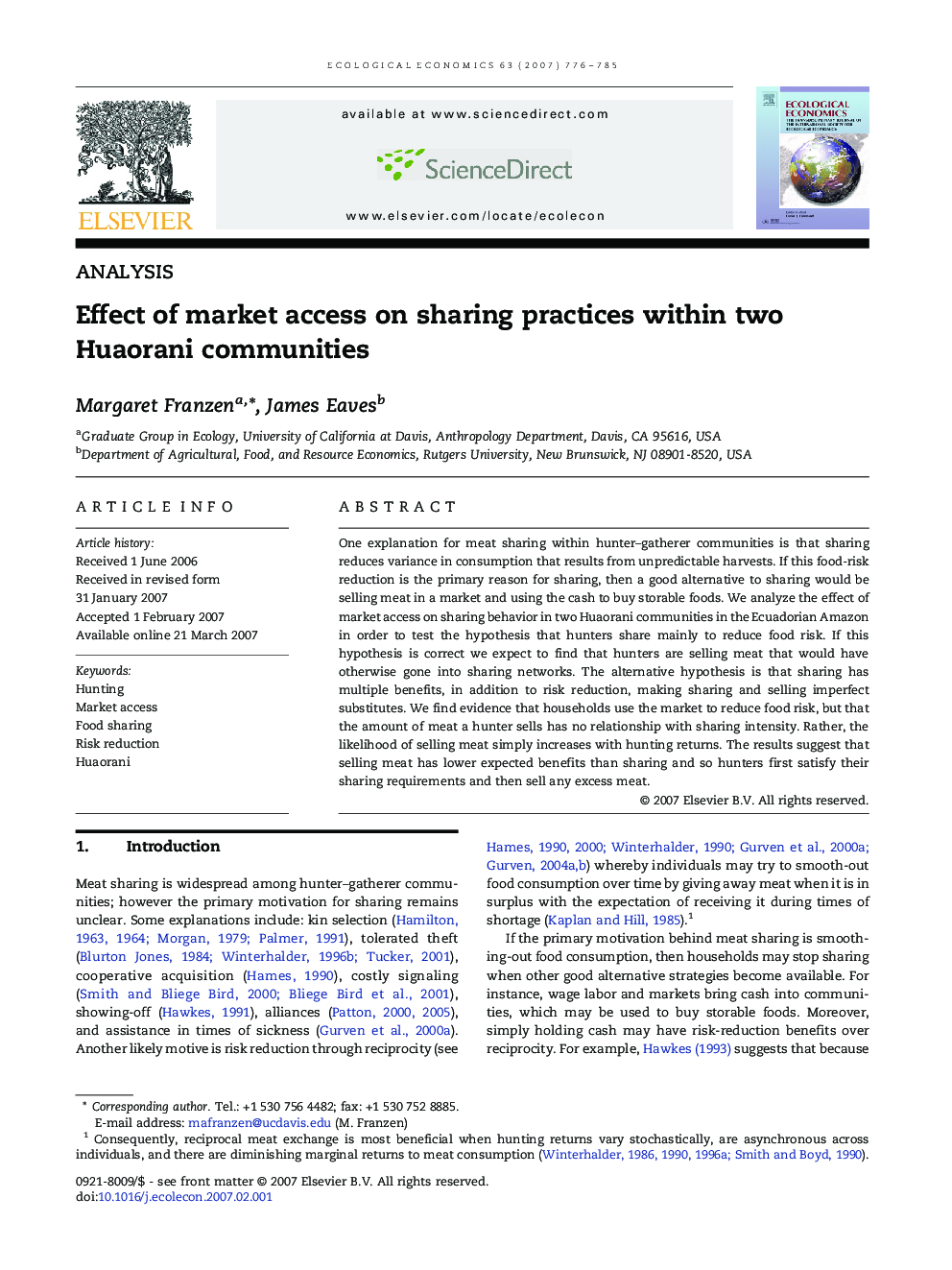| کد مقاله | کد نشریه | سال انتشار | مقاله انگلیسی | نسخه تمام متن |
|---|---|---|---|---|
| 5051872 | 1371139 | 2007 | 10 صفحه PDF | دانلود رایگان |

One explanation for meat sharing within hunter-gatherer communities is that sharing reduces variance in consumption that results from unpredictable harvests. If this food-risk reduction is the primary reason for sharing, then a good alternative to sharing would be selling meat in a market and using the cash to buy storable foods. We analyze the effect of market access on sharing behavior in two Huaorani communities in the Ecuadorian Amazon in order to test the hypothesis that hunters share mainly to reduce food risk. If this hypothesis is correct we expect to find that hunters are selling meat that would have otherwise gone into sharing networks. The alternative hypothesis is that sharing has multiple benefits, in addition to risk reduction, making sharing and selling imperfect substitutes. We find evidence that households use the market to reduce food risk, but that the amount of meat a hunter sells has no relationship with sharing intensity. Rather, the likelihood of selling meat simply increases with hunting returns. The results suggest that selling meat has lower expected benefits than sharing and so hunters first satisfy their sharing requirements and then sell any excess meat.
Journal: Ecological Economics - Volume 63, Issue 4, 15 September 2007, Pages 776-785